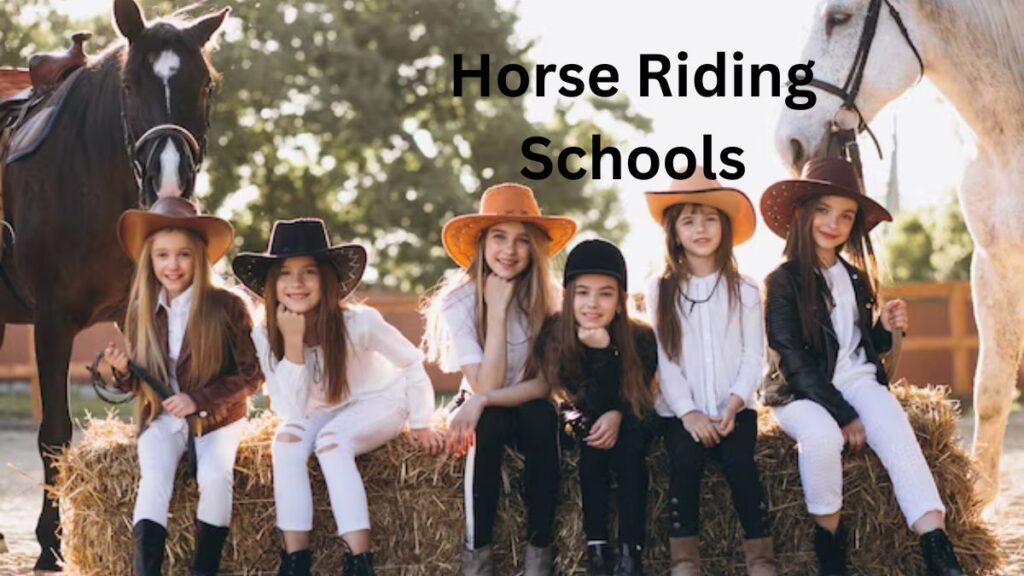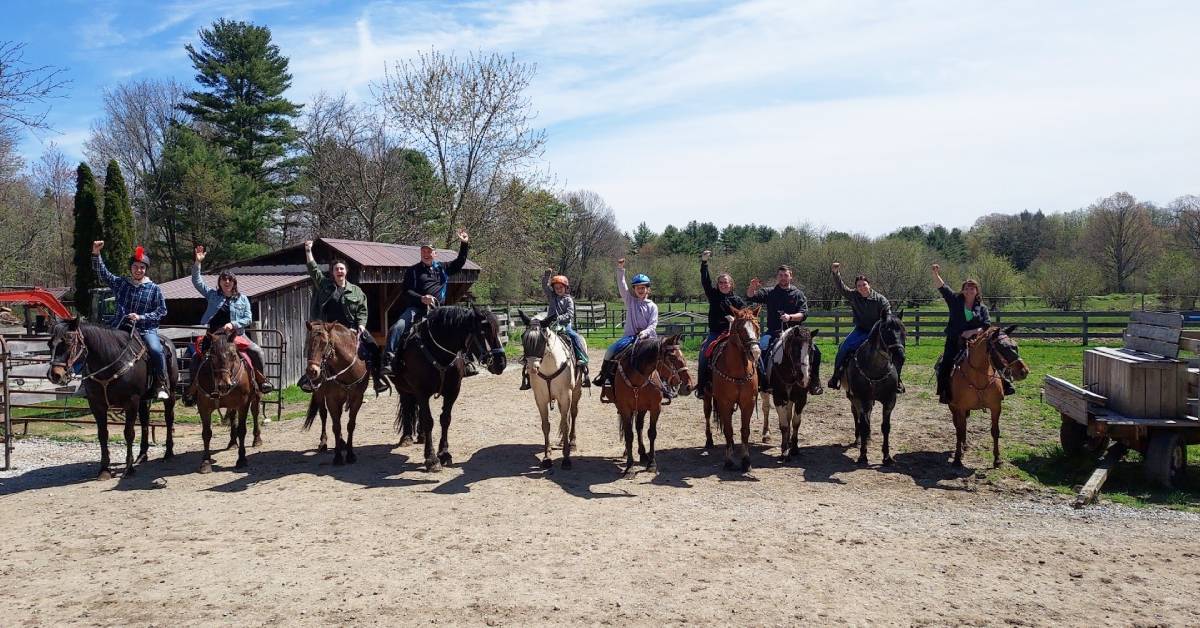Looking to explore the world of horseback riding? Look no further! In this article, we will take a closer look at different horseback riding schools and what they have to offer. Whether you’re a beginner or an experienced rider, finding the right school is crucial to honing your skills and enjoying this exhilarating activity. From basic riding techniques to advanced training sessions, we will delve into the various programs available, highlighting their unique features and benefits. So, if you’re ready to saddle up and embark on a new equestrian adventure, keep reading!

Different Types of Horseback Riding Schools
When it comes to horseback riding, there are various types of schools that specialize in different disciplines and styles of riding. Whether you are a beginner just starting out or an experienced rider looking to enhance your skills, choosing the right riding school is essential. Here are some of the different types of horseback riding schools you can consider:
Western Riding Schools
Western riding is a popular style of riding that originated from the American West. It is often associated with cowboys and ranch work. Western riding schools focus on teaching riders how to ride in a Western saddle and use Western-style tack. The emphasis is on comfort, balance, and control. Western riding schools offer lessons for all skill levels, from beginners to advanced riders.
English Riding Schools
English riding is a more formal and disciplined style of riding that originated in Europe. It is commonly seen in disciplines such as show jumping, dressage, and eventing. English riding schools teach riders how to ride in an English saddle and use English-style tack. The focus is on proper posture, technique, and communication with the horse. English riding schools cater to riders of all levels, from beginners to competitive riders.
Dressage Riding Schools
Dressage is a highly skilled and precise discipline within English riding. It focuses on developing the horse’s natural athleticism and the rider’s ability to communicate effectively through subtle aids. Dressage riding schools specialize in teaching the principles of dressage, including collection, extension, lateral movements, and flying changes. These schools offer lessons for riders of all levels, from beginners to advanced dressage riders.
Show Jumping Riding Schools
Show jumping is an exciting and challenging discipline within English riding. It involves navigating a series of jumps in a timed event. Show jumping riding schools focus on teaching riders how to approach jumps, maintain balance and control, and ride with precision. These schools offer lessons for riders of all levels, from beginners to advanced show jumpers.
Endurance Riding Schools
Endurance riding is a long-distance discipline that tests the horse and rider’s stamina, fitness, and partnership. It involves riding over varying terrains and distances, often covering 50 miles or more in a single day. Endurance riding schools specialize in preparing riders and their horses for endurance events. Training includes building stamina, managing horse health, and understanding trail etiquette.
Trail Riding Schools
Trail riding is a recreational activity that involves riding on designated trails and exploring the great outdoors on horseback. Trail riding schools cater to riders of all levels, from beginners to experienced riders. They focus on teaching riders how to navigate trails safely, ride on different terrains, and enjoy the beauty of nature on horseback. These schools often have well-trained trail horses for riders to use.
Vaulting Riding Schools
Vaulting is a unique equestrian sport that combines gymnastics and dance on horseback. Vaulting riding schools focus on teaching riders how to perform various acrobatic and dance moves while maintaining balance and control on a moving horse. They offer lessons for all levels, from beginners to advanced vaulters. Safety is of utmost importance in vaulting, and these schools prioritize proper technique and supervised training.
Therapeutic Riding Schools
Therapeutic riding, also known as equine-assisted therapy, is a form of therapy that uses horses to help individuals with physical, cognitive, or emotional disabilities. Therapeutic riding schools have specially trained horses and qualified instructors who work with individuals to improve their physical and mental well-being. These schools offer customized programs tailored to each individual’s needs.
Rodeo Riding Schools
Rodeo riding is a high-energy and adrenaline-filled sport that showcases various skills such as barrel racing, roping, and bull riding. Rodeo riding schools focus on teaching riders the specific techniques and skills required for rodeo events. These schools prioritize safety and provide training in different rodeo disciplines, allowing riders to participate in rodeo competitions.
Polo Riding Schools
Polo is a fast-paced team sport played on horseback. It requires excellent horsemanship, coordination, and strategic thinking. Polo riding schools specialize in teaching riders how to play polo, including polo rules, polo pony care, and polo technique. These schools often have well-trained polo ponies for riders to learn on and provide opportunities to participate in polo matches and tournaments.
Factors to Consider When Choosing a Horseback Riding School
Now that you are aware of the different types of horseback riding schools available, it’s important to consider several factors before making your decision. Here are some key factors to consider when choosing a horseback riding school:
Location
The proximity of the riding school to your home or workplace is important to consider. You don’t want to spend excessive time traveling to and from the school, especially if you plan on taking regular lessons. Choose a riding school that is conveniently located and easily accessible for you.
Facilities and Equipment
Check the riding school’s facilities and equipment. Ensure that they have well-maintained riding arenas, stable facilities, and a variety of school horses suitable for riders of different levels. The safety and comfort of both you and the horses should be a top priority for the school.
Instructors and Training Methods
Find out about the qualifications and experience of the riding school’s instructors. They should have relevant certifications and experience in teaching riders of your skill level. Inquire about the teaching methods used by the instructors to ensure they align with your learning preferences and goals.
Lesson Options and Packages
Consider the lesson options and packages offered by the riding school. Some schools may offer private lessons, group lessons, or a combination of both. Determine which option suits your learning style and budget. Additionally, inquire about any discounts or packages available for multiple lessons or long-term commitments.
Safety Measures
Safety should be a top priority for any riding school. Inquire about the safety measures in place, such as mandatory helmet usage, safety protocols, and emergency procedures. Look for a riding school that prioritizes the well-being of both riders and horses.
Accreditations and Certifications
Check if the riding school is accredited or affiliated with recognized equestrian organizations. Accreditation indicates that the school meets certain standards of instruction and horse care. It ensures that you are receiving quality education and training.
Reviews and Testimonials
Read reviews and testimonials from past and current students of the riding school. Feedback from others can provide insights into the school’s reputation, teaching methods, and overall quality. Look for positive reviews and testimonials that highlight the strengths of the riding school.
Price and Value
Consider the cost of lessons and services offered by the riding school. While it’s important to find a school that fits within your budget, remember that the cheapest option may not always provide the best value. Evaluate the quality of instruction, facilities, and overall experience to determine if the cost aligns with the value provided.
Horse Care and Welfare
A reputable riding school should prioritize the care and welfare of their horses. Inquire about the school’s horse care practices, such as feeding routines, veterinary care, and exercise schedules. Ensure that the horses are well-cared for and treated with respect.
Additional Activities and Programs
Consider any additional activities or programs offered by the riding school. Some schools may offer opportunities for trail rides, horse shows, clinics, or participation in equestrian events. These programs can enhance your riding experience and provide opportunities for growth and development.
By considering these factors, you can make an informed decision when choosing a horseback riding school that aligns with your goals, preferences, and values.
(Continued in next comment)

